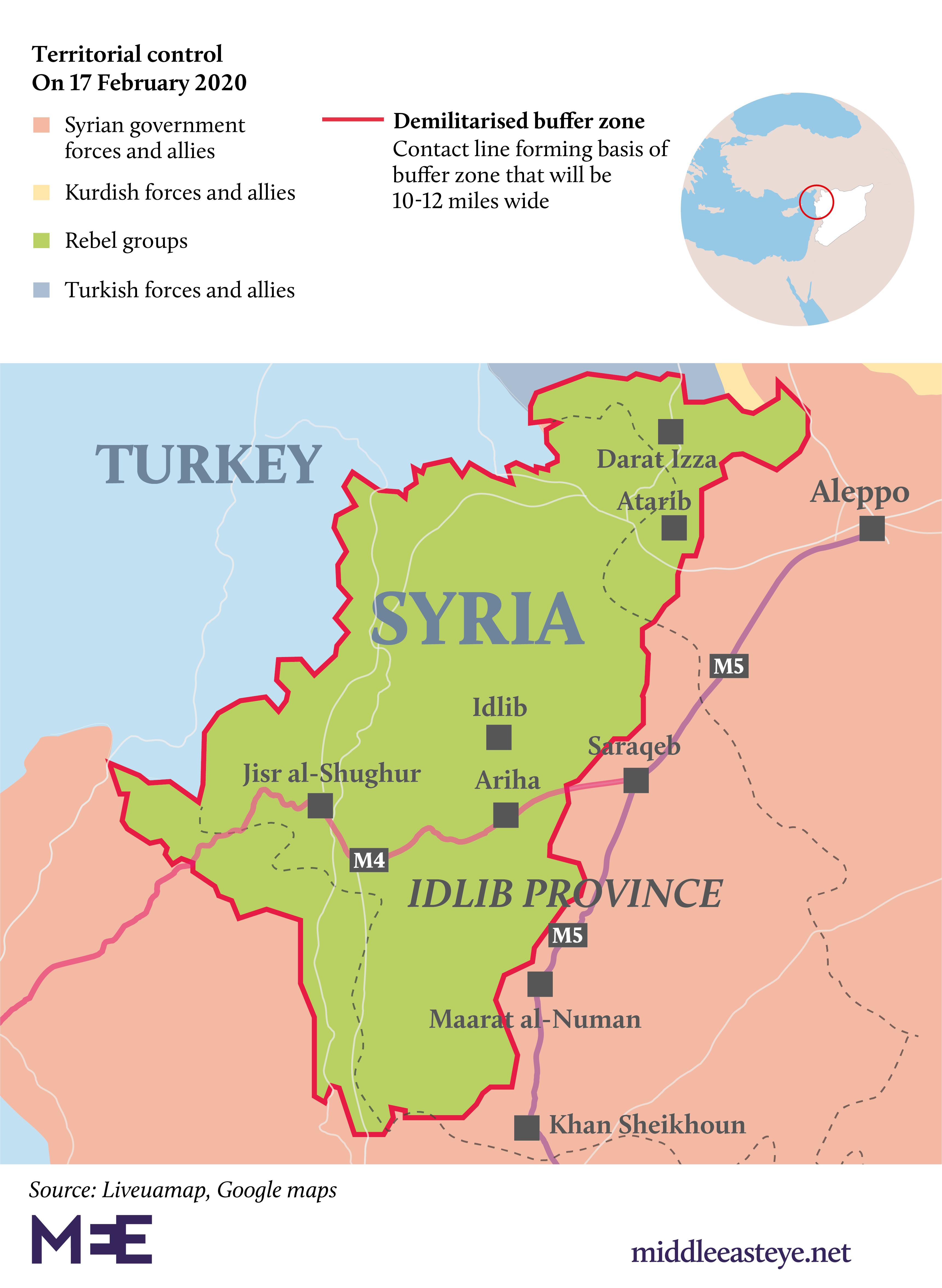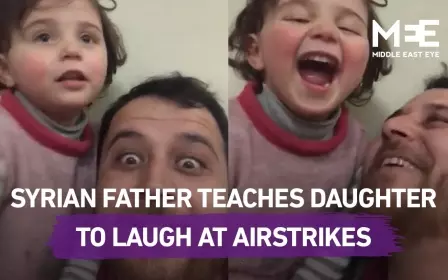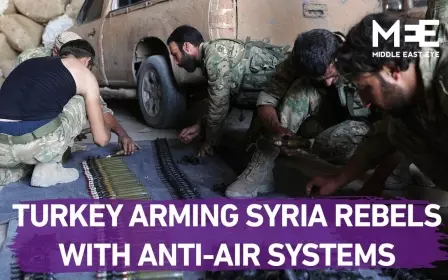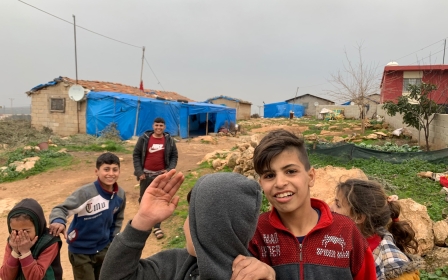Aleppo hospitals bombing may be a war crime, UN warns
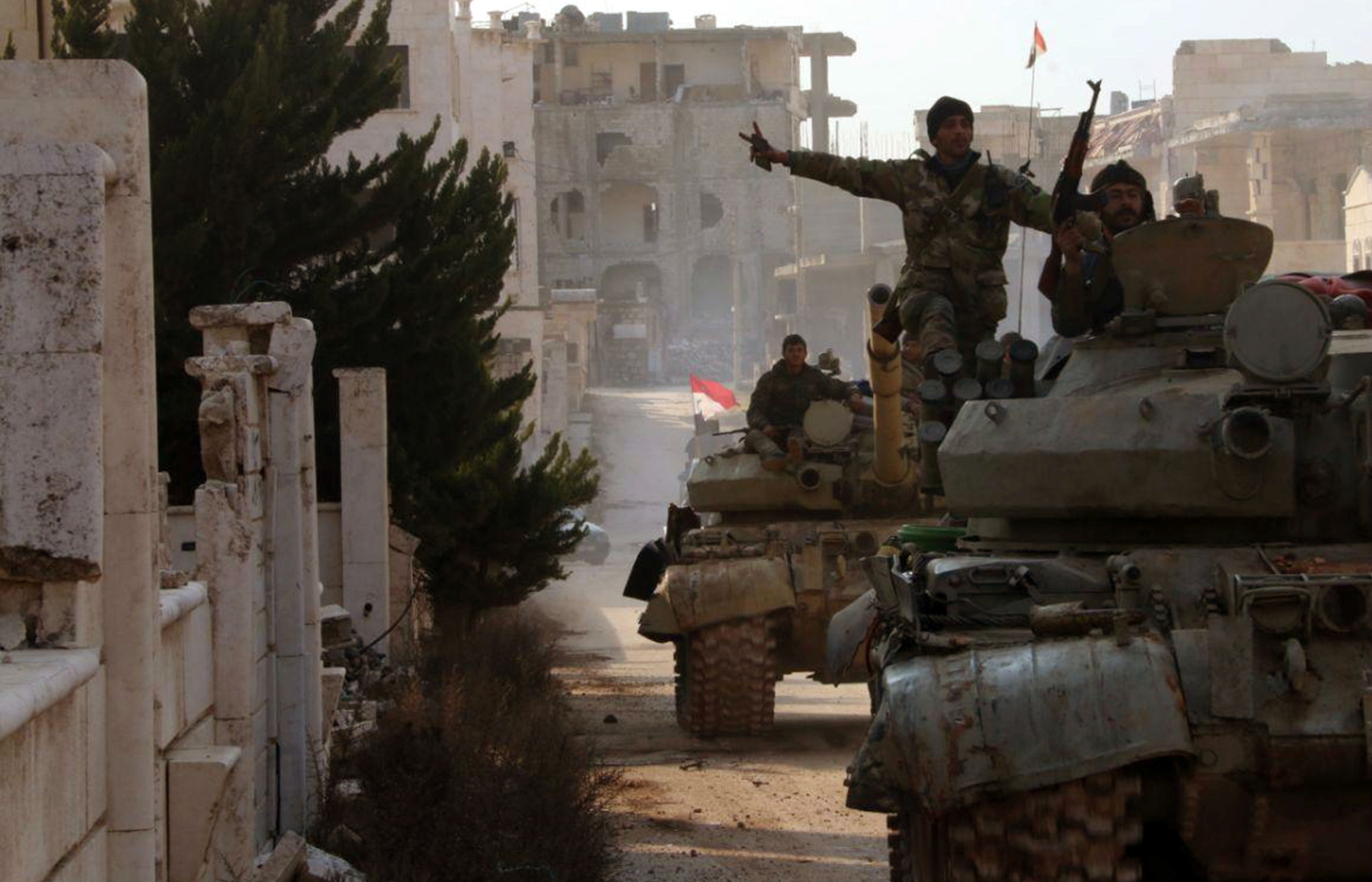
The United Nations on Tuesday condemned pro-Syrian government forces’ bombing of two hospitals in western Aleppo province as a possible war crime, as towns and villages in the rebel-held region continued to have bombs rained down on them.
The Kinana and al-Fardous hospitals near the town of Darat Izza were struck by eight missiles the day before, which activists and rescue workers said were fired by Russian warplanes.
Around 300,000 people relied on the facilities which had now been put out of action, aid workers told Middle East Eye.
Forces loyal to President Bashar al-Assad, backed by Russian air power, have been concentrating attacks on rebel-held urban areas of the western Aleppo countryside in recent days.
The assault is part of a broader push to clear the opposition’s last stronghold in Syria’s northwest, an operation that has retaken more than 600 square km since December.
New MEE newsletter: Jerusalem Dispatch
Sign up to get the latest insights and analysis on Israel-Palestine, alongside Turkey Unpacked and other MEE newsletters
"The sheer quantity of attacks on hospitals, medical facilities, and schools would suggest they cannot all be accidental," UN human rights spokesman Rupert Colville said, adding that the attacks could constitute a war crime.
Meanwhile, shelling on Tuesday killed one civilian in Darat Izza and an air strike gouged a huge crater into the popular market in the Aleppo province town of Atarib, activists said.
To the southeast, pro-government forces struck areas in and around the Idlib province towns of Termanin, al-Dana, Sarmin and Maarat al-Naasan, where local media said one civilian was killed.
Pro-Assad fighters were also reportedly killed in western Aleppo province by rebel missile fire, one of them a member of the Iranian Revolutionary Guard Corps, according to Iranian state media.
Meanwhile, in Moscow, Turkish officials met with their Russian counterparts for a second day, with discussions adjourned without any agreement on a ceasefire.
Faced with nearly a million displaced Syrians fleeing the offensive toward its border, rebel-backer Turkey has ploughed men, arms and vehicles into northwestern Syria in recent days, and sought promises from Russia that it will restrain its Syrian government ally.
Turkey’s representatives stressed in Moscow that Ankara’s military was prepared to engage Syrian government forces if they continue to advance. The two sides’ artillery already clashed last week with deadly effect.
“We said in the meetings with Russians that we made necessary military preparations to push Assad regime forces back if they don’t withdraw,” Omer Celik, a spokesman for Turkey's ruling AK Party, said.
'We said in the meetings with Russians that we made necessary military preparations to push Assad regime forces back if they don’t withdraw'
- Omer Celik, Turkish spokesman
Increasing numbers of Syrians are being forced to flee day by day, with roads choked with vehicles packed with people and belongings.
Temperatures are bitterly cold, and at least 82,000 people have been forced to sleep out in the open.
Around 500,000 children have been displaced since December, according to the UN’s children’s agency, UNICEF. Seven have died in the freezing temperatures in recent days, Save the Children said.
“We now believe 900,000 people have been displaced since 1 December, the vast majority women and children,” Mark Lowcock, UN head of humanitarian affairs and emergency relief, said in a statement.
“They are traumatized and forced to sleep outside in freezing temperatures because camps are full. Mothers burn plastic to keep children warm. Babies and small children are dying because of the cold,” he added.
“The biggest humanitarian horror story of the 21st century will only be avoided if Security Council members, and those with influence, overcome individual interests and put a collective stake in humanity first. The only option is a ceasefire.”
Russia has repeatedly vetoed Security Council motions on Syria since the conflict broke out in 2011.
In eight years, around half a million people have been killed and half of Syria’s pre-war 22 million population displaced.
Middle East Eye delivers independent and unrivalled coverage and analysis of the Middle East, North Africa and beyond. To learn more about republishing this content and the associated fees, please fill out this form. More about MEE can be found here.


